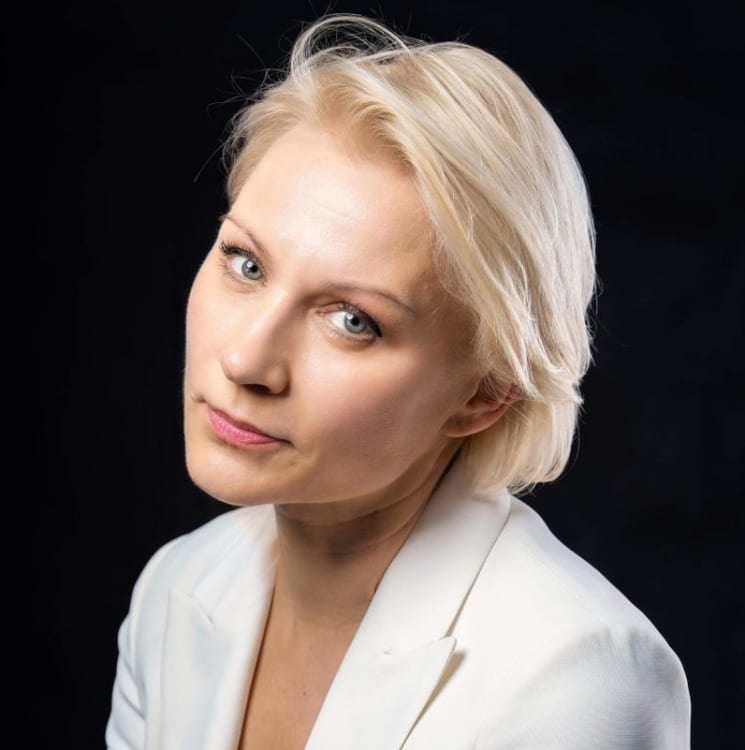On the morning of 1st of August 2019, at the friendly Dom Muzyka hotel in Gdansk, while having coffee and a chat with a talented young Armenian director, Lusié Yernjakyan, a striking looking woman walked into the dinning room. Lusié and I recognised her as the actress that starred in last night’s performance of Hamlet. She is Alona Szostak. She joined us with a warm smile and the following conversation is a record of our brief impromptu interview. Lusié Yernjakyan, kindly offered to translate Alona’s answers from Russian into English. Alona can speak English but naturally felt at home with Russian.
There were two performances of Hamlet, the previous night. Lasting a total of five hours, back-to-back, performances at St John’s Church, the actors had no interval. The audience attending the early performance, seamlessly and gradually, been replaced by those attending the second show. This Hamlet production was one of the highlights of Gdansk Shakespeare Festival. It was a sell-out for the two performances. The show was nominated for the Golden Yorick Competition, but lost out to The Merchant of Venice. Each of the nominated productions has intriguing and fascinating aspects to it.
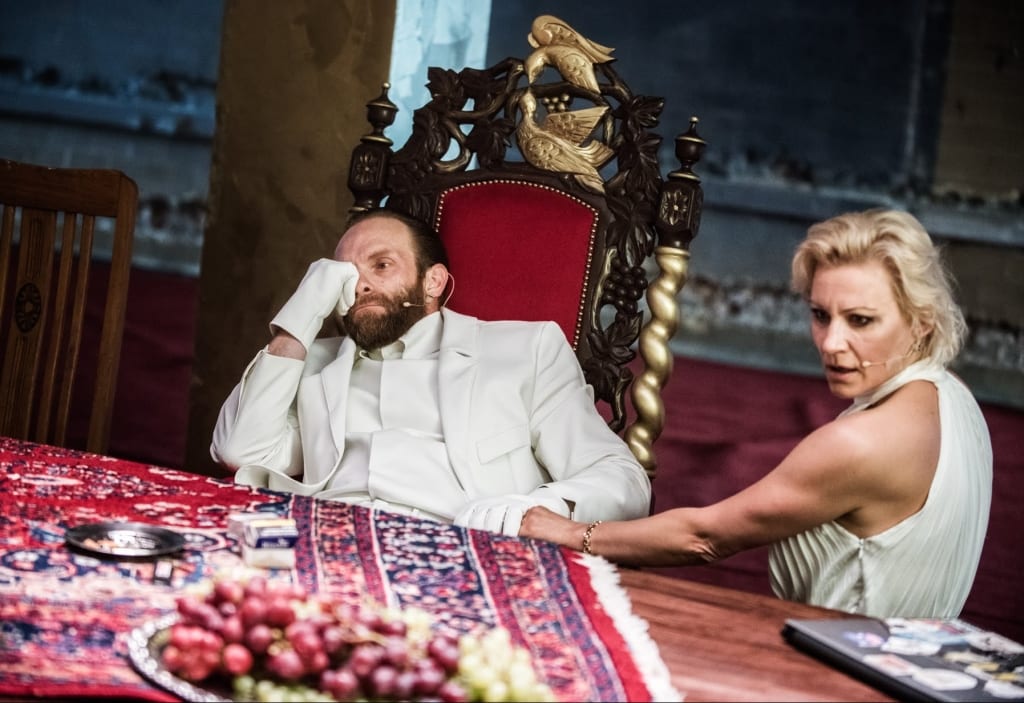
This Hamlet is interactive and the whole 55-meter long and 20 meter wide church was utilised for the different locations and scenes, in which the narrative unfolds. The audience was offered headphones in which any of three languages were on offer – Russian, Ukrainian and Polish. I guess this is a preamble to Brexit – no English!
Alona was cast as Queen Gertrude, Hamlet’s mother. Her Gertrude is an experienced Royal, who knows she is not the King, but has sufficient power to navigate the tragic plot, desperately trying to communicate with her much loved son, Hamlet.
To my question how does she see her character, she answers with no hesitation:
‘Gertrude is a lonely woman and very unhappy. She knows all will end badly. She is trying to enjoy the last minutes with her son. She loves him with so much passion, that she wants him as a woman and as her child. She is ready to protect him. In this production she kills Ophelia because she sees Ophelia as of no use to her son. She knows Hamlet will not be happy with her. Anything that stands in her son’s way should be eliminated’.
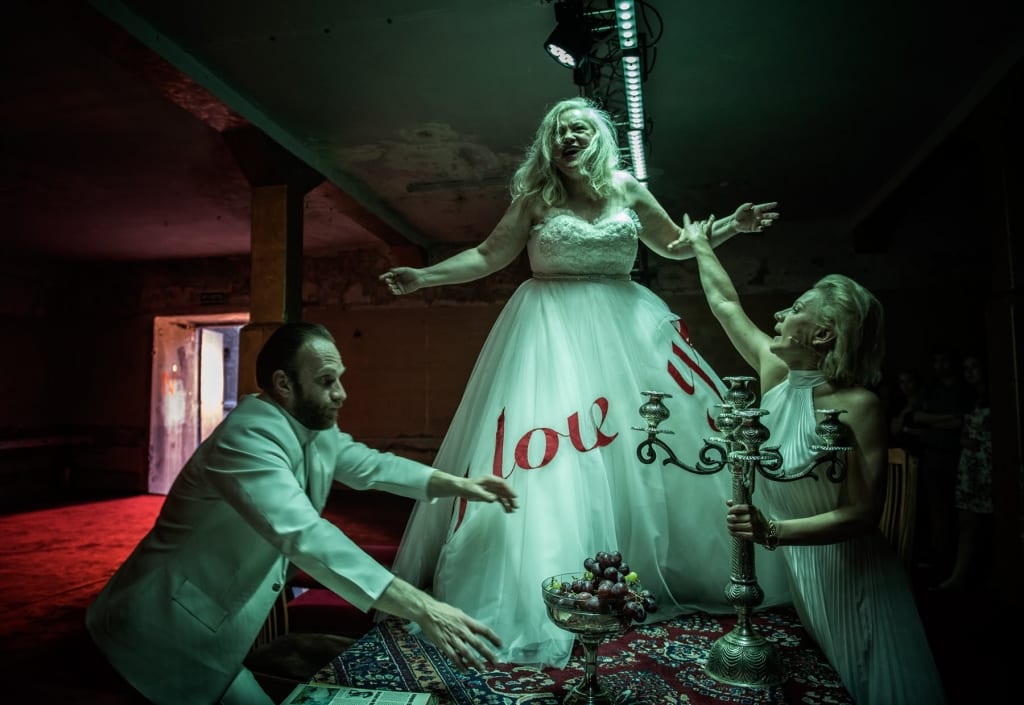
I pointed out that she laughs a great deal and drinks a lot throughout the performance.
‘Yes this is her social mask. She married the king for practical reasons. He chooses me I did not choose him. If a king dies you have to marry his brother. It is obvious that Claudius and Gertrude were lovers before, by now they don’t love each other any more and actually they are bored with each other’.
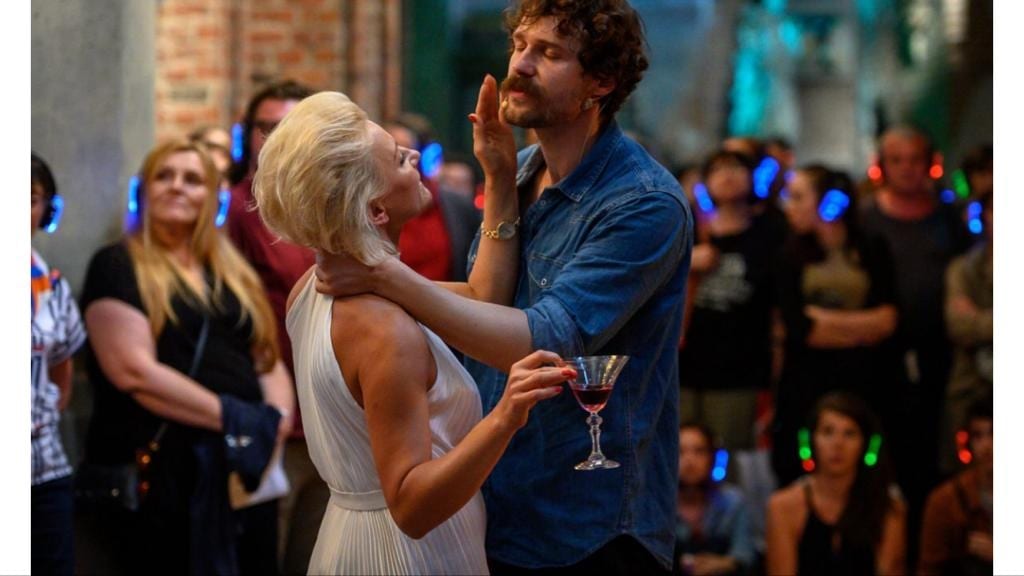
The bedroom scene with Hamlet is tense and fully charged with dramatic tension like no other scene in this production. The vortex in the relationship is enhanced when she speaks to her son in Russian and he replies in Ukrainian. Their emotions intensifies and standing within very close proximity, in their bedroom, one senses the greatness of these two actors who manage to relive the visceral emotional pain that Hamlet and his mother are undergoing and trying to resolve.
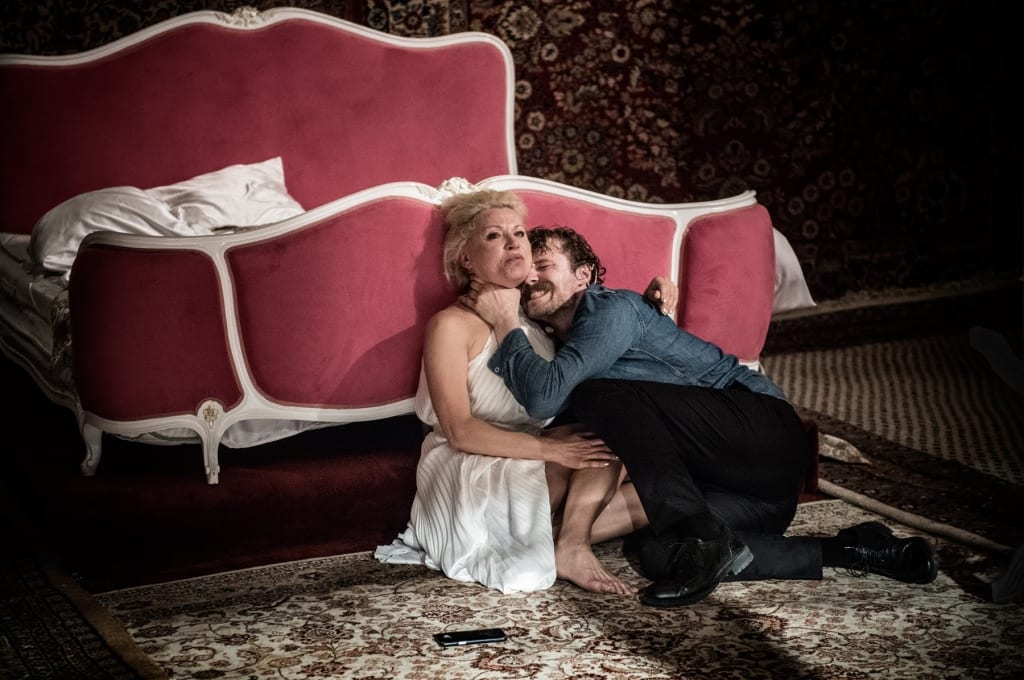
Maja Kleczewska directed this impressive production staged by Polish Theater in Poznań.
There is almost a fairy-tale touch to Alona Szostak’s life story. She was a young actress in Russia. In 1992 she abandoned eeverything, to move to Poland with the man she loved – her husband. She knew that to perform in any other country, she would need to speak the local language. She tried to learn Polish, but progress was slowed down soon after her first child was born and her husband abandoned the young family. The option of going back to Russia, the country she loves, seemed an easier choice than staying and making the most of what she has in the host country. She chose to stay in Poland.
She juggled motherhood with work and ambition to establish herself as an actress. She worked to support herself and a child and whenever she could, she would perform in the evenings. Minor stage roles were allocated to her and she made the most of each and every part, regardless how small and inconsequential it may have seemed. She learnt Polish as fast as she could. Circumstances forced her to take small parts in Musicals, although she was trained as a classic actress. She learnt to work with orchestras, movement and singing. ‘I learnt a great deal there. I am most grateful to my director who took me without knowing what I could do’. She says.
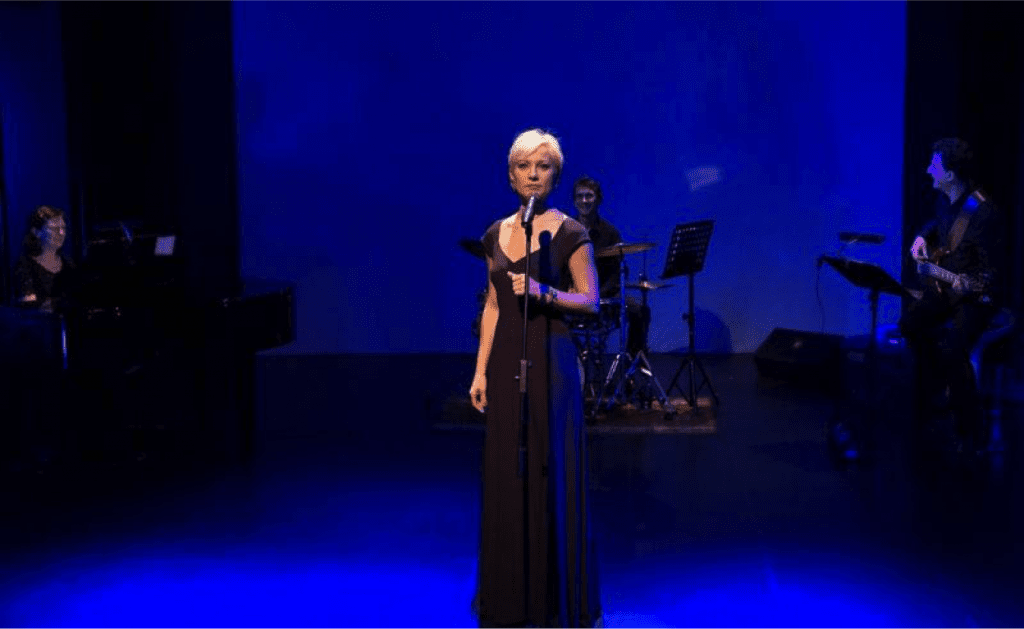
Alona is a striking woman. She comes across as an assertive, yet sensitive person.
She admits she is consumed by the desire to act. She is aware that she is not getting younger and therefore would love to perform as many leading roles as she possibly can.
The big career break came in 2011 in a form of a new director – Monika Strzępka. Monika recognised Alona’s talent and skills as an actress and gave her a role in ‘Położnice szpitala św Zofii’ (= Midwives of the St. Sophia Hospital). Alona was noticed and her career and future prospects took a turn that most actors dream of. She became a celebrity and in demand.
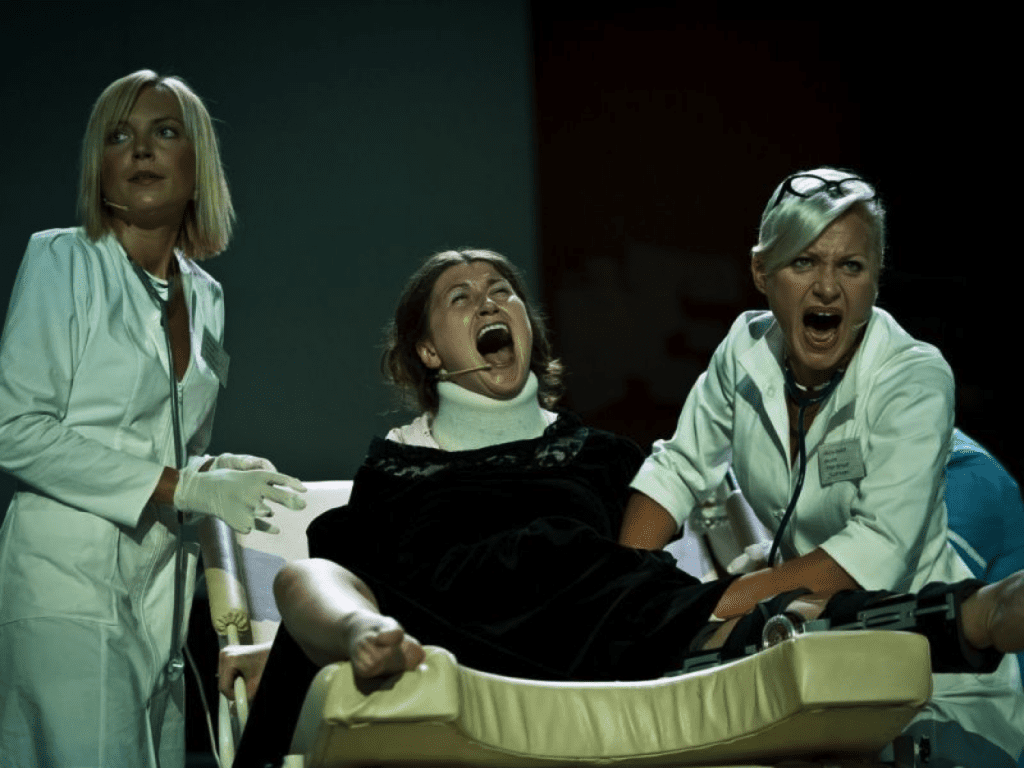
A monologue, based on her life story, was written, specifically for her to perform. It was cathartic for her and a box office success.
Alona’s advice to young actors ‘you should never limit yourself to one medium of acting. Keep an open mind and don’t be afraid to undertake a totally new challenge. Doing musicals teaches you to do anything you want’.
Alona, she has now two grown up children and a loving and supportive husband.

